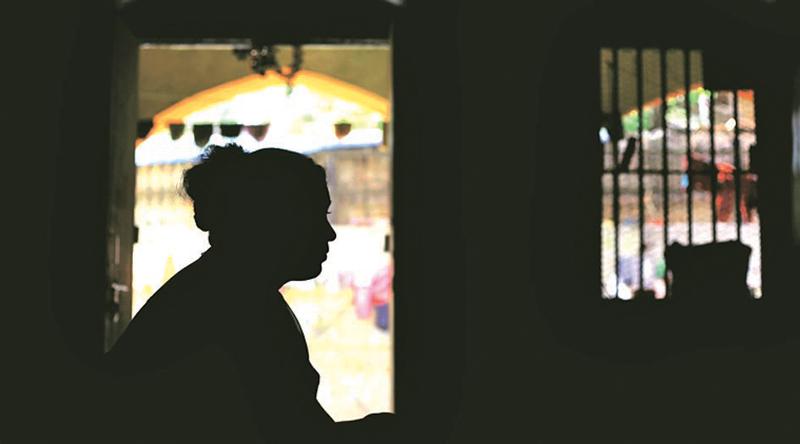
A media crew armed with cameras walks into a room led by a policeman where three women have just been arrested for running a prostitution racket. Two out of the three women are seen covering their faces with a cloth hiding their faces from the cameras directed at them. One woman sobs as she pleads
“Please don’t film, please don’t film”. As her pleas are ignored, in a shocking move the same policeman that let in the media crew yanks away the cloth revealing their faces to the world to see. Unable to face the situation anymore, the woman grabs a bottle of liquid and threatens to drink it to end her life as other policemen in the room scramble to stop her. These are the disturbing scenes that unfolded on national television recently during the news telecast of a popular channel.
The incident has drawn widespread criticism from the public and activists on the behaviour of the Police and the media in that situation.
Commenting on the tawdry incident Attorney-at-Law and rights activist Radika Gunaratne noted that media being escorted as seen to a raid is somewhat rare. “I believe one reason was that one of the females who was arrested was a known figure for her outspoken views,” she said. The woman had been featured on a number of videos online where she was seen talking openly about topics considered taboo in Sri Lankan society. “For example she had once commented that a porn industry must be established in Sri Lanka,” Gunaratne noted. Often slammed for her controversial remarks, the woman had also openly admitted to being engaged in sex work.
According to Gunaratne, this does not warrant for her or the other suspects’ identities to be revealed by the media to the public.“They are not criminals and are merely suspects” she noted adding that creating an uproar in society through media coverage cannot be accepted. “Unfortunately there is a huge market for news items such as these and often their identities are exposed,” she said. Taking this incident as an example Gunaratne noted how despite not giving information about the women arrested, the headline of the news insinuated as to who the main suspect could be. “They had given out hints allowing people to deduce that it was this particular individual,” she pointed out.
According to Gunaratne a clear violation of the rights of the suspects have taken place. Due to the behaviour of the media and society, these women have now in turn become victims, she opined. “The issue of Police escorting media to these places must also be raised,” she noted.
According to her, the Police has no right to reveal the identities of the suspects to media when being arrested which contravenes the Criminal Procedure Code which gives guidelines on how to arrest a suspect.
Speaking to the Sunday Observer, a former UN Official who worked towards HIV AIDS prevention in Sri Lanka also condemned the incident. “No one has the right to record an individual without his permission to broadcast it on public media,” he said, adding that it is ridiculous that a person could expose the identity of an unwilling suspect in this manner. “The duty of the Police is to produce suspects before courts and not to declare them guilty,” he added. “It is up to the judiciary to convict or release them.’’
He also noted that this could also negatively affect the HIV prevention programs in Sri Lanka. “If the Police publicises these arrests in this manner people would not do anything that would reveal their sexual activity such as carrying condoms or facing HIV testing in the fear of arrest, discrimination and harassment,” he said adding that it would violate the basic principles of public health. “As a result for me at least this is an alarming situation,” he said.
With Sri Lanka aiming to eliminate HIV AIDS by 2025, he expressed his concerns if the goal will be met due to the regressive legal system in the country.
He also commented on the behaviour of the public on social media following the arrests.
“The comments showed the level of hypocrisy in Sri Lankan society demonstrated towards sexuality,” he said. According to him, the situation is unfortunate as activists such as himself have put in a lot of effort to ensure fundamental rights along with public health for the betterment of the country.
However, not all members of the public hailed the act. Many have slammed the move by the police and media. As one member of the public noted on social media “She merely wanted to cover her face with at least a cloth to not become the next hot news item in the country. She too must live in this country tomorrow. She may even have children. She is still a suspect so what duty has this policeman carried out by throwing away the piece of cloth that covered her face. In any other country human rights activists would have taken legal action on behalf of her for the injustice caused”.
- MB
